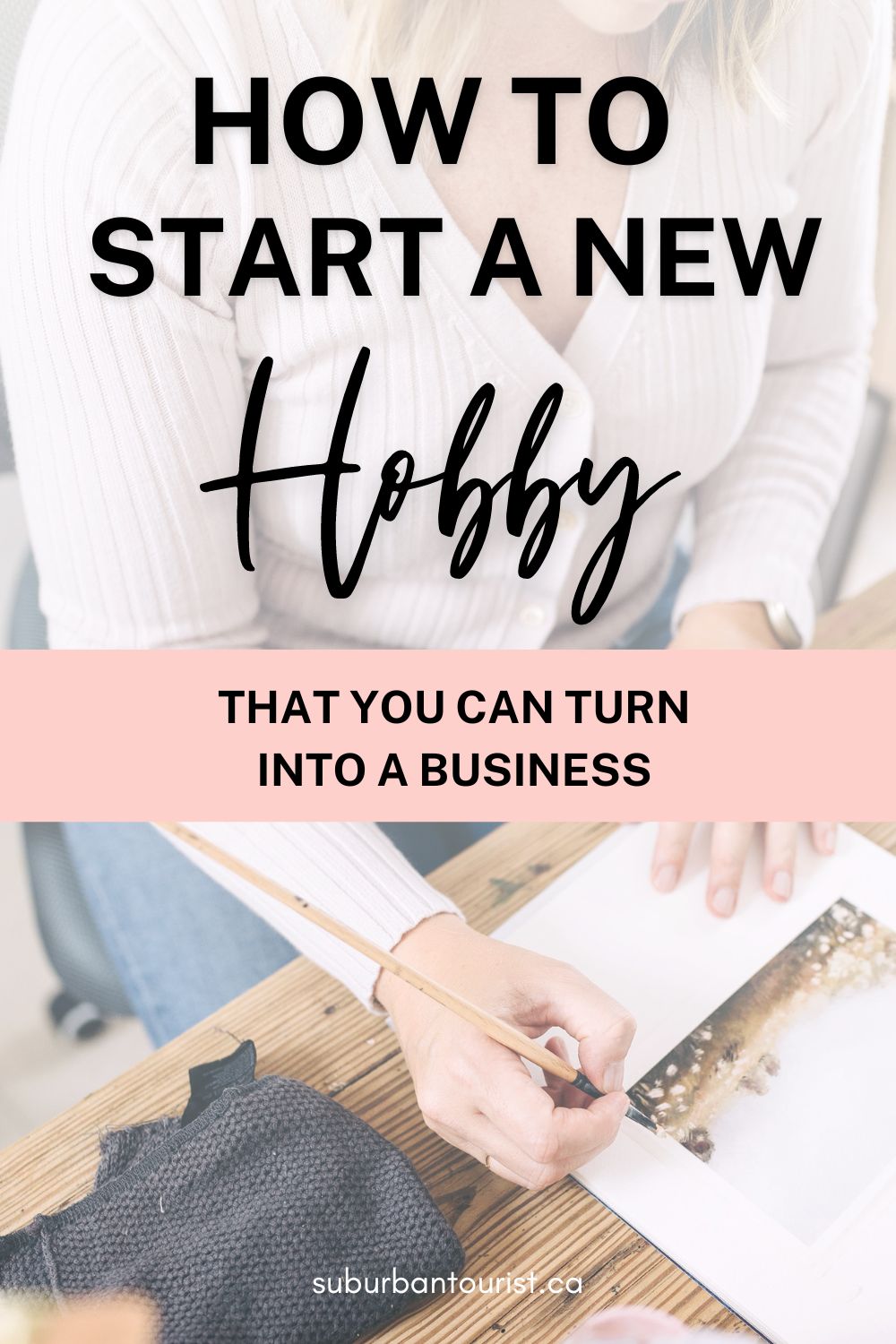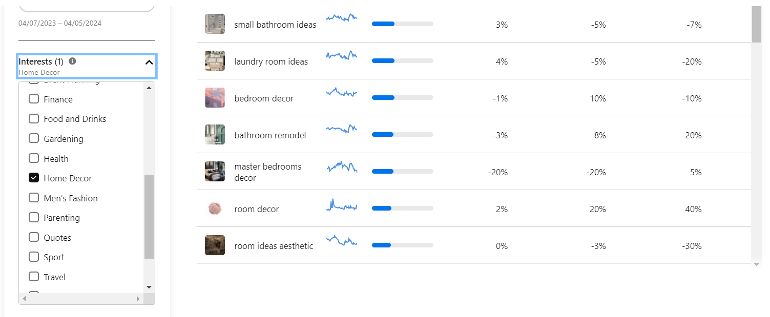I never thought my little hobby blog could turn into a blog coaching business, but it did. Starting a new hobby is one of the smartest things I did. Based on what I’ve learned, I’m sharing tips for starting a new hobby that you can turn into a business.
When I was in my 30s, I started blogging with a lifestyle blog that focused on travel and the outdoors. By 2019 I had people asking me to coach them so they could create blogs that were like mine.
I was able to turn a hobby into a business!
Choosing the right hobby is the key to transforming it into a business.
However, there are a few things to consider. We’ll dive into these, so you can choose the best hobby that makes money in the future.
Disclosure: This post contains sponsored product. I recommend products I would use or have used myself and all opinions expressed here are our own. This post contains affiliate links. I may make a small commission on any purchases you make using these links, at no extra cost to you. Read my full Disclaimer.

5 Tips For Starting A New Hobby: Choosing One To Transform Into A Business
Hobbies are a great activity for rainy days and even days when you’re feeling bored.
They can be fulfilling, making you feel like you’ve accomplished something and generally making you feel happier with yourself.
This is why people enjoy them!
Are you going from hobby to hobby? I’ll help you find the perfect hobby for you – one that’ll be a lifelong interest and a potential source of income.
I’m sharing five tips for starting a new hobby so you don’t make the mistakes some people make.
1. Test Out Several Hobbies – Find What You’re Passionate About
Before starting a hobby that you think will be your future moneymaker, try several of them first.
At one point I thought photography was going to be my hobby that would become my business.
Like with any hobby, sometimes your interest will wane. The trick is to find something you enjoy doing for more than a few months.
If you’ve been enjoying a hobby for more than a year, and you’re still passionate about it, then it might be the perfect fit.
For example, I was blogging for about 10 years before I decided to move into a blog coaching business. I knew at this point that I would love doing it for a long time to come.
2. Choose A Hobby That’s Popular With Market Demand
Obscure hobbies are limiting for future business growth. Look at hobbies with the market demand for the products or services you’ll offer.
If your potential pool of customers is small it doesn’t make sense to pursue a hobby that won’t bring in an income.
How do you find these popular hobbies?
There are several places you can look:
- Pinterest trends
- Google trends
- Instagram and TikTok: check consistently popular topics
Here’s Pinterest Trends: you can drill down to your hobby category and see if there is a general upswing in interest in your hobby niche.

Finding the perfect hobby for you is like finding the perfect blog niche for your new blog.
3. Find A Hobby That’s Not Controversial
Starting a new hobby can be exciting, especially if there’s an edginess to it.
While it may seem cool to choose a controversial hobby, it’s probably not good for the long run.
For example, here are some hobbies that may be controversial now or in years to come:
- Extreme sports
- Hunting
- Taxidermy
- Drones and drone racing
- Cosplay (sexualization)
- Street art and graffiti
These all have issues surrounding them, and can potentially be eliminated by legal means, or a societal shift in how they’re viewed.
4. Choose A Hobby That Taps Into Your Skills
Before starting a hobby, consider your existing skills and what you’ll need to learn to be successful.
Love writing? Choose a hobby that works with your writing abilities.
Are you good at home repairs? Perhaps a DIY hobby might be a good one to try.
Know how to sew? Knitting or crafting might be a good hobby that uses similar skills.
Find the hobbies that don’t require a huge learning curve. Build on the existing skills you have and you can transition your hobby into a business faster.
This reduces the chance of you quitting your hobby – and thus, losing your opportunity to turn it into a successful business.
For example, I’ve always been good at creating content. So I started exploring blogging when it became a popular thing to do. Luckily, I’ve grown as a blogger alongside my career in PR and digital marketing because the skills are transferrable.
My skills working with clients in my agency jobs have helped immensely with my blog coaching business.
5. Do Market Research And Validate Your Hobby
The last point in this list of tips for choosing a hobby requires a bit of research on your part.
I know, I know… this sounds very businesslike, but if you want to run a hobby turned business, you’ve got to start thinking like a business person.
So many people make this mistake: they choose a hobby but don’t look at who their potential customer is, and whether it can be a moneymaker.
Other questions to answer:
- Is there much competition?
- What’s the average price point for the products or services you’ll be offering?
- Does your potential customer purchase products and services you’ll create from your hobby?
- What do they believe and what’s their pain point? Can you deliver a solution?
Validate your hobby choice by joining Facebook groups, subreddits and forums. Ask questions about what they purchase, and what they’re willing to spend.
This will give you a good idea if your hobby will be a viable one for an ongoing monthly income.
It will also motivate you to finally start building your hobby business!
| RELATED: 50 Powerful Motivational Quotes To Get You Started On Your Goals
Turn A Hobby Into A Business: Plan For Your Future
When you’ve chosen the perfect hobby, start putting aside money for business start up costs.
Businesses that succeed require time, effort and money to get going.
From resources to a platform for selling: you’ll need money. It’s taken me a few years of time and money invested to build my business to where it is today.
For example, here are some costs for shops and platforms for selling digital products:
- Shopify (physical and digital products): USD $29/month – best option to manage and customize your store
- Stan Store (digital products and services): USD $29/month
- Sendowl (digital products and services): USD $18/month (plus fees per order for starter package)
- Podia (digital products and services, minimal physical products): USD $8/month (plus fees per transaction).
10 Hobbies To Consider
Want to know what some of the best hobbies to consider?
I’m sharing a list of those that are pretty lucrative and can lead to many ways to monetize your business.
- Sewing
- Writing
- Cooking
- Photography
- Pottery
- Gardening
- Brewing
- Interior design
- Woodworking
- Refurbishing old furniture
Which one of these interests you?
Start A New Hobby Today
The sooner you start a new hobby, the sooner you can grow it into a business.
Here’s one piece of advice I give all those in their 30s: start a hobby that you know you can grow into a business.
As you hit your 40s, you’re likely to face job loss and a much harder situation in finding a job. The truth is that ageism is real (I’ve experienced it many times).
Build the foundation for a business you’ll launch in the future – whether it’s a few years from now or 10 years from now.
The more you can learn and become an expert in your hobby, the better your opportunities for business success.
| RELATED: How To Rock The Work From Home Life
QUESTION: What are the hobbies you’re considering?







Comments are closed.